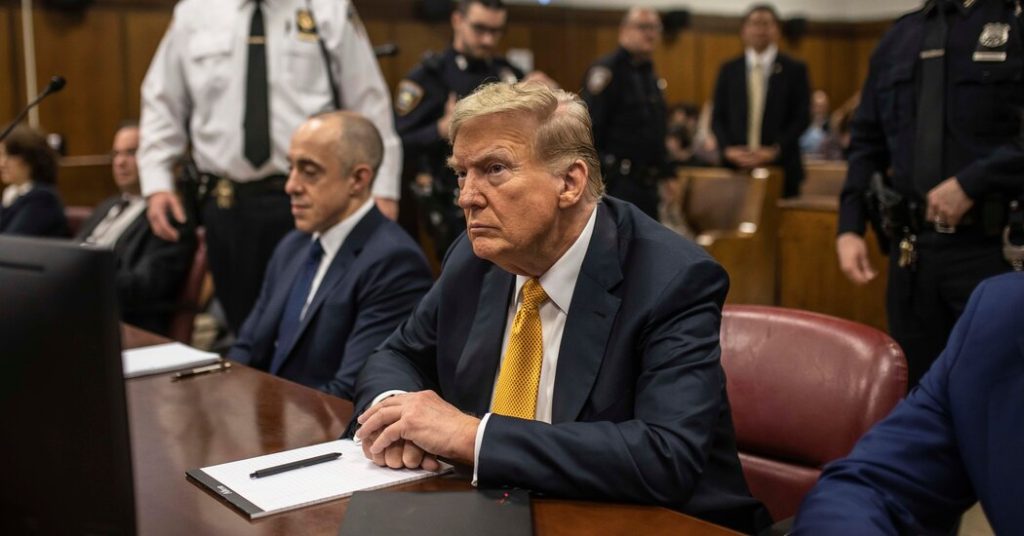President-elect Donald J. Trump’s legal team launched an eleventh-hour appeal to the New York Appellate Division, seeking an emergency stay of his impending sentencing scheduled for Friday, just ten days before his presidential inauguration. The core argument of their appeal rests on the assertion that Mr. Trump, as president-elect, enjoys absolute immunity from prosecution and even sentencing, citing potential “irreparable harm and deprivation” of his constitutional rights. They contend that proceeding with the sentencing, with its inherent stigma and potential criminal penalties, poses an unacceptable risk to America’s vital interests and is therefore unconstitutional. This latest legal maneuver represents a significant escalation in Mr. Trump’s persistent efforts to overturn his conviction and avoid the historical distinction of being the first felon to occupy the Oval Office.
Mr. Trump’s legal team, led by Todd Blanche, argued that the very act of sentencing, regardless of the specific punishment, carries a stigma and potential criminal ramifications that are incompatible with the office of the president-elect. They painted a picture of a nation destabilized by the unprecedented scenario of a president-elect undergoing a criminal sentencing, arguing that such an event would undermine the integrity of the presidency and harm the country’s standing on the global stage. The filing specifically challenges two recent decisions by the trial judge, Juan M. Merchan, upholding the jury’s verdict, further highlighting Mr. Trump’s unwavering commitment to challenging the conviction on multiple fronts. This aggressive legal strategy underscores the high stakes involved, not only for Mr. Trump personally but also for the broader political landscape.
The sentencing stems from a jury’s May conviction of Mr. Trump on 34 felony counts of falsifying business records to conceal a sex scandal. Since the verdict, Mr. Trump has launched a multi-pronged attack, challenging the verdict itself, the judge’s impartiality, and now, the legitimacy of the sentencing process itself. Justice Merchan has consistently rebuffed Mr. Trump’s attempts to dismiss the case and, despite indicating he would likely avoid imposing jail time or other significant penalties, scheduled the sentencing for Friday. This decision further fueled Mr. Trump’s ire, prompting him to publicly criticize the judge and his family, a pattern he has maintained throughout the legal proceedings.
Mr. Trump’s frustration with the judge’s refusal to cancel the sentencing, particularly after his lawyers resubmitted previously rejected arguments, led him to shift his focus to the appellate court. His legal team’s urgent appeal hinges on the expectation of a rapid response from the court. The process involves a single judge reviewing the emergency request, typically followed by a brief hearing. A ruling could be issued within the same day, potentially halting the sentencing proceedings just days before they are scheduled to occur. The speed with which the appellate court acts will determine whether Mr. Trump faces sentencing before his inauguration.
This latest legal maneuver adds another layer of complexity to an already tumultuous transition period. The potential implications of a president-elect facing criminal sentencing are unprecedented and create significant uncertainty about the future. Mr. Trump’s continued legal battles are likely to overshadow the early days of his presidency, diverting attention from his policy agenda and potentially further polarizing the nation. The outcome of the appellate court’s decision will significantly impact not only Mr. Trump’s personal future but also the political landscape of the United States.
The ongoing legal saga raises fundamental questions about the intersection of the judicial system and the presidency. Can a president-elect be sentenced for a crime? What are the constitutional implications of such an event? These questions are at the heart of Mr. Trump’s appeal and represent a significant legal challenge that will likely have long-lasting consequences. The appellate court’s decision will set a precedent for future cases and potentially reshape the relationship between the executive branch and the judiciary. The nation awaits the court’s ruling, which will undoubtedly shape the course of Mr. Trump’s presidency and the future of American jurisprudence.


